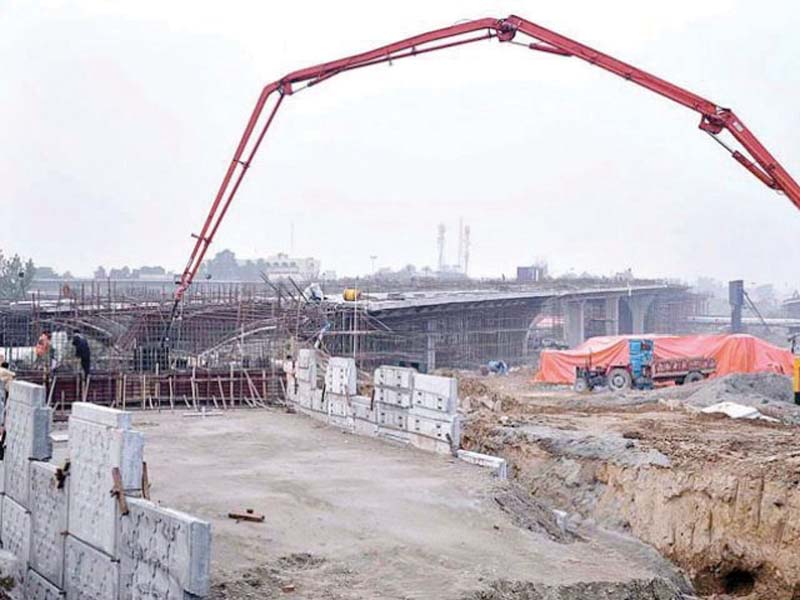
Contrary to a popular myth, the British government is no better than Pakistani government when it comes to managing megaprojects.
From 2014-15, the Whitehall bureaucrats have lost millions of pounds just on IT projects that were later scrapped; not to mention those that ran millions over budget.
In Feb 2016, the Auditor General for Scotland observed that due to systematic failures around programme governance, the NHS-24 IT project to manage patient records is £41 million over budget and two years behind schedule.
Delivery of public sector projects leaves much to be desired
Previously, the national NHS IT system was abandoned in late 2011 after a decade of experimentation - costing the taxpayer nearly £10 billion.
In the wake of this fiasco, the UK government established Major Projects Authority (MPA) as a partnership between the Cabinet Office and HM Treasury with a Prime Ministerial mandate to improve project delivery across government departments through robust assurance measures.
The MPA worked with departments to identify which projects were the ‘major’ ones and how were they managed for assurance and approval purposes. The MPA used to compile a ‘Government Major Projects Portfolio’ (GMPP) and reported on them regularly to ministers.
The Authority, however, failed to turn around things in a fashion it was expected of and since January 2016, Infrastructure UK (IUK) and the Major Projects Authority (MPA) have been merged – in another desperate attempt to streamline delivery of public sector projects.
Nevertheless, there are some important lessons for Pakistan to draw out from this episode of the British MPA.
Pakistan to set up first mega nuclear power plant: Ahsan Iqbal
Lesson 1: If you can’t measure it, you can’t improve it
The British National Audit Office (NAO) has attributed the poor performance of projects to a lack of consistent data available for performance benchmarking and trend analysis. It has emphasised to put systems and processes in place that enable more frequent reporting and tracking of key variables such as direct costs and subcontractors’ progress.
In Pakistan, the schedule and milestone chart are taken for granted and project directors have an attitude put as: “things would be done when they are done.” The PC-iii form used for project monitoring and evaluation is obsolete and does not employ best practices such as earned value management.
However, the low-hanging fruit here is to revamp monitoring and evaluation process suite, and a push-strategy to rollout a fully IT power solution, like that in UK, might not be a bad idea.
Lesson 2: Split large projects into multiple phases
NAO also identified that turnover of senior responsible officers in UK posed a great challenge to success of those megaprojects that have a very long time frame. “Inadequate training of junior project staff is a critical factor that could lead to confusion, scope changes and rework in case the senior project manager retires or leaves,” it noted.
Transparent or not: NAB probes metro bus project
One solution to this problem of successor turnover is to split large projects into multiple phases where each phase is treated as an independent project with proper documentation and closing.
Without this approach, ruling political parties in Pakistan would advocate only those projects that could be completed within their tenure. Mega projects like construction of large dams would be ignored for years to come.
Lesson 3: Stakeholder engagement is no longer optional
Francis Maude, a former Tory minister, has advocated the need to adopt agile project management practices – a methodology that focuses more on stakeholder engagement and scope management.
All large-scale projects come with even larger expectations and every stakeholder has its own criteria of success. Whether it is the Heathrow airport terminal-5 fiasco in UK or the much criticised Orange-train project in Lahore, it takes only a few dissatisfied stakeholders to make screaming headlines such as ‘white elephant’ in press.
Public sector project managers need to keep the media apprised of all key developments and milestones. The former Major Project Authority initiated the practice of publishing project contracts online along with an annual report on the progress of Government’s major projects.
However MPA was criticised for not publishing key data such as total project costs incurred and progress against milestones in line with the transparency policy. Pakistan needs to avoid such pitfalls to get unanimous political and public support for timely delivery of projects in the CPEC portfolio.
The writer is a Cambridge graduate and is working as a management consultant.
Published in The Express Tribune, March 14th, 2016.
Like Business on Facebook, follow @TribuneBiz on Twitter to stay informed and join in the conversation.


1729662874-0/One-Direction-(1)1729662874-0-165x106.webp)





1732084432-0/Untitled-design-(63)1732084432-0-270x192.webp)








COMMENTS (3)
Comments are moderated and generally will be posted if they are on-topic and not abusive.
For more information, please see our Comments FAQ